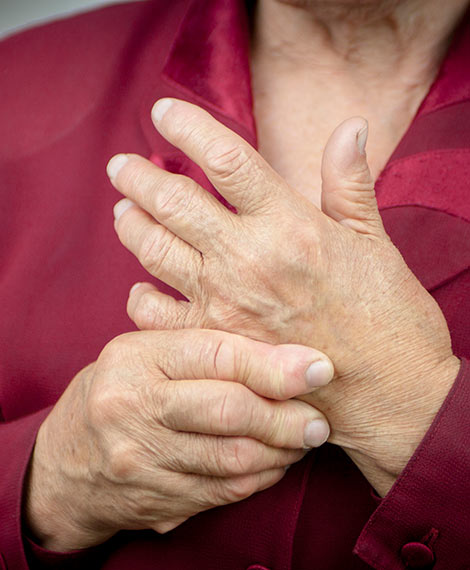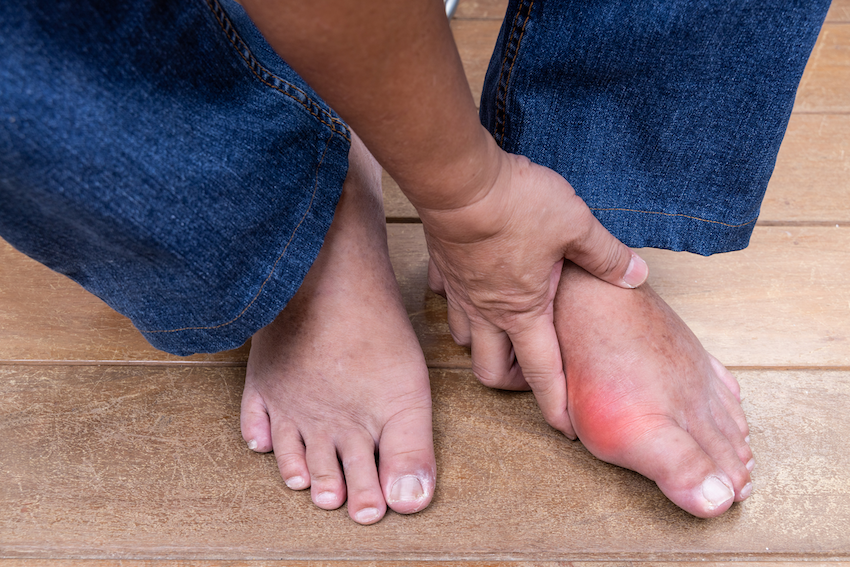
Arthritis
Arthritis is a disease that is characterized by inflammation of one or more joints. It is very common but is not well understood. Actually, “arthritis” is not a single disease; it is an informal way of referring to joint pain or joint disease. There are more than 100 different types of arthritis and related conditions, with osteoarthritis as the most common. People of all ages, sexes and races can and do have arthritis. It is the leading cause of disability in America , and can occur in any joint including hips, knees, shoulders, hands and feet, neck and low back.
As of yet, no cure exists; however, there are medications, procedures, and treatments that can alleviate some of the pain caused by this disease.
Common arthritis joint symptoms include swelling, pain, stiffness and decreased range of motion. Symptoms may fluctuate and can be mild, moderate or severe. Symptoms may also stay about the same for years, but may progress or get worse over time. Severe arthritis can result in chronic pain, inability to do daily activities and make it difficult to walk or climb stairs.
When the joint symptoms of osteoarthritis are mild or moderate, they can be managed by:
- balancing activity with rest
- using hot and cold therapies
- regular physical activity
- maintaining a healthy weight
- strengthening the muscles around the joint for added support
- using assistive devices
- taking over-the-counter (OTC) pain relievers or anti-inflammatory medicines
- avoiding excessive repetitive movements
Arthritis can cause permanent joint changes. These changes may be visible, such as knobby finger joints, but often the damage can only be seen on X-ray. Some types of arthritis also affect the heart, eyes, lungs, kidneys and skin as well as the joints.
If joint symptoms are severe, causing limited mobility and affecting quality of life, some of the above management strategies may be helpful, but you may benefit from longer lasting interventions to prevent surgery.
At Restore Medical Partners, we will complete a thorough review of your history and ask patients to describe the location, severity and type of pain, in addition to the history of the pain: when the patient started to feel it, and any activities or positions that make the pain better or worse. We will review your MRI or x-rays and order imaging if you do not have imaging completed on your first visit. Then, we will explain to you what is causing your joint pain. Our goal is to prevent major surgery and use minor interventional techniques to relieve your pain and get you back to doing the things you enjoy. Interventional procedures for joint pain include major joint injection with anti-inflammatory medication, knee joint or hip joint radio-frequency ablation, or cervical or lumbar radio frequency ablation may be necessary. If these measures fail to relieve pain, joint replacement or surgery may be necessary. At Restore Medical Partners, we strive to do everything possible to prevent or prolong surgery.
REFERENCES:
http://www.arthritis.org/about-arthritis/understanding-arthritis/what-is-arthritis.php




